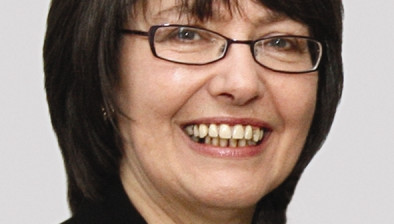Over a third of women ‘feel unsafe’ in their neighbourhood at night

Helen McEntee
More than a third of women in Ireland feel unsafe walking in their neighbourhood at night, according to new research.
The Central Statistics Office (CSO) yesterday published the findings of its Crime and Victimisation Survey 2019.
Interviews for the survey were carried out between April and October 2019 and asked respondents to rate their response to a series of questions relating to the impact that crime had on their lives in the preceding 12 months and their opinions on how effectively crime is dealt with in Ireland.
Justice Minister Helen McEntee said: “Official recorded crime statistics can only give us a limited picture of people’s experience of crime within our communities, given their reliance on crimes actually reported to gardaí.
“Combining them with the Crime and Victimisation Survey helps build a more rounded picture of the public’s experience of crime, allowing us to further identify and analyse ongoing crime trends and concerns across Ireland and providing a very valuable insight for future policy-making.”
The survey found that women are almost three times more likely than men to feel unsafe walking within their own locality at night. Of women who responded, 22 per cent said they felt a little unsafe and 14 per cent said they felt very unsafe.
“This is a very concerning finding and there is an onus on all of us to ensure people feel safe and secure where they live,” Ms McEntee said.
“An Garda Síochána’s focus on community engagement and outreach to vulnerable groups and individuals throughout the COVID-19 public health emergency has provided reassurance during a time of difficulty, showing the great value of a community-based policing service, while simultaneously continuing normal policing activities to tackle areas such as fraud and deception, organised crime, and drug related crime.
“This community engagement will be cemented in the new Garda Operating Model which is being rolled out in line with the recommendations of the Commission on the Future of Policing in Ireland and building confidence in communities will be a key aim of this work.”
The survey also found that seven per cent of adults who were victims of personal crime felt that the crime took place because of a personal characteristic of theirs, such as their age, gender or race. Four per cent of victims said they felt that the crime had been motivated by their race, religion or ethnicity.
Ms McEntee said: “Targeting any individual on the basis of a personal characteristic is completely unacceptable and the Government has made clear its intention to take further action to tackle hate crime.
“Following a detailed public consultation held over recent months, my Department is currently finalising detailed proposals on new hate crime and incitement to hatred legislation. It is my intention to submit these proposals to Government as soon as possible.”










